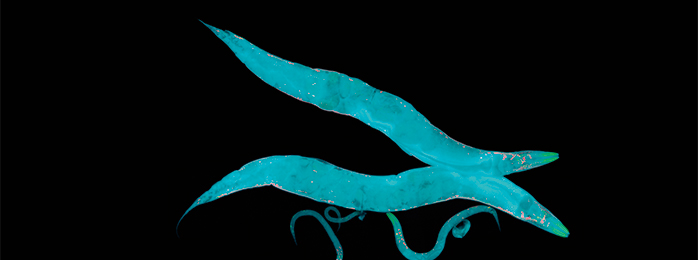
The Moment Aging Begins
When we think about aging, we tend to envision a decades-long slide toward old age: a few wrinkles here, some gray hairs there, our frailties slowly accumulating until we reach our dotage.
But research led by molecular bioscientist Richard I. Morimoto suggests that on a molecular level, aging begins rather suddenly — right about the time we reach reproductive maturity.
In a study built on a decade of research, Morimoto and postdoctoral fellow Johnathan Labbadia looked closely at the events that occur in the cells of the transparent roundworm C. elegans when it starts to reproduce.
They found that at the moment of reproductive maturity — which for the roundworm occurs precisely eight hours into adulthood — a genetic switch starts the aging process by turning off responses that protect the cells (and the animal) from stress.
Though the roundworm is only 1 millimeter in length, that genetic switch — and other components that play a role in aging — are shared by all animals, including humans.
So should we despair that from a cellular perspective, we’re probably “over the hill” before we’ve even climbed it? Hardly, Morimoto says.
“I am very interested in keeping our quality control systems optimal for as long as we can, and now we have a target,” says Morimoto, the Bill and Gayle Cook Professor of Molecular Biosciences and director of the Rice Institute for Biomedical Research.
“Our findings suggest that we can reverse the decline in stress resilience by turning this genetic switch back on, and that we can protect our aging cells by improving their ability to resist the accumulation of molecular damage.”
Back to top